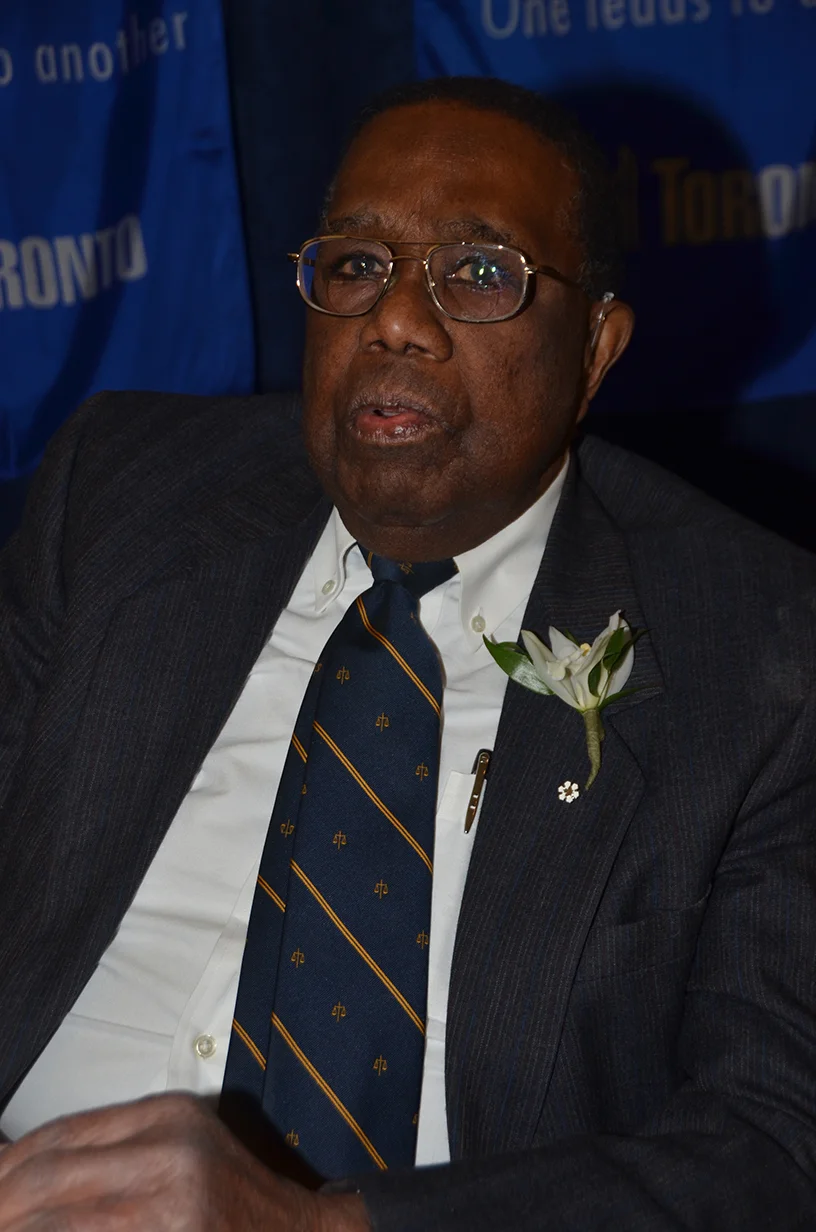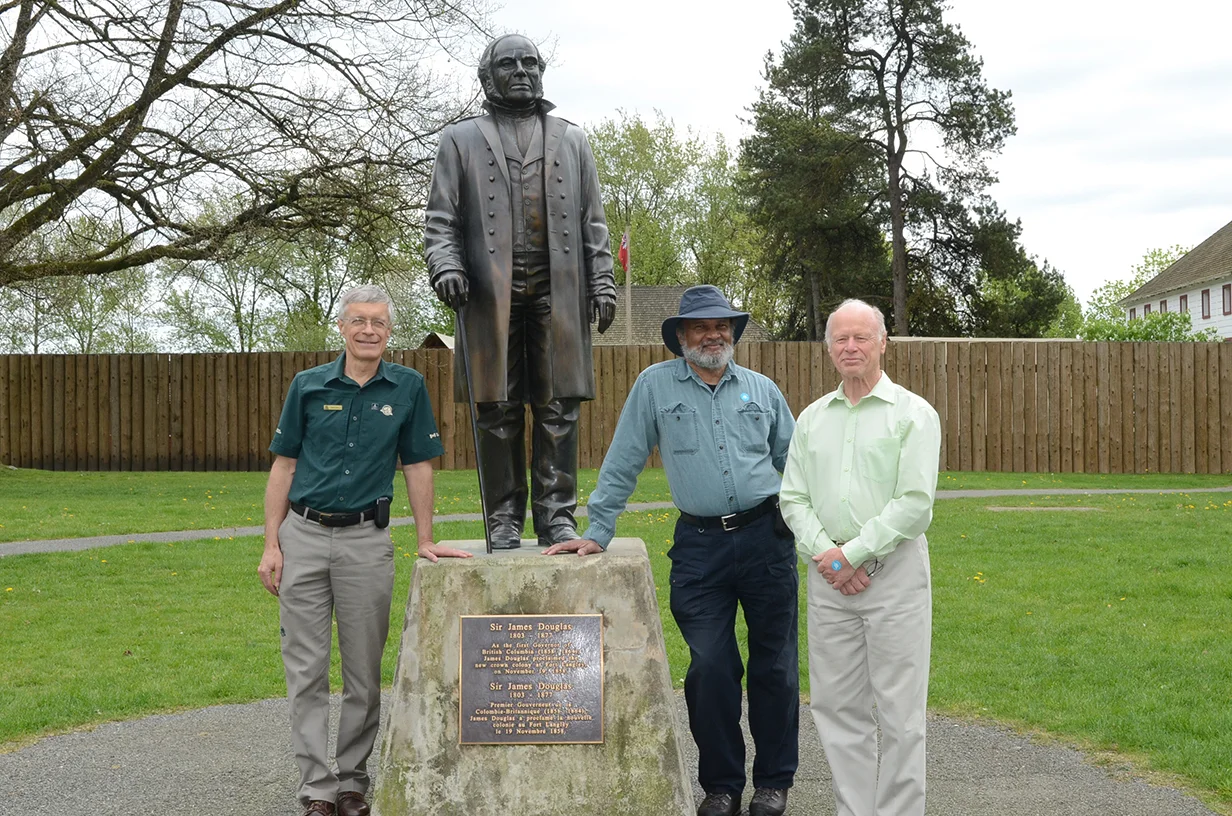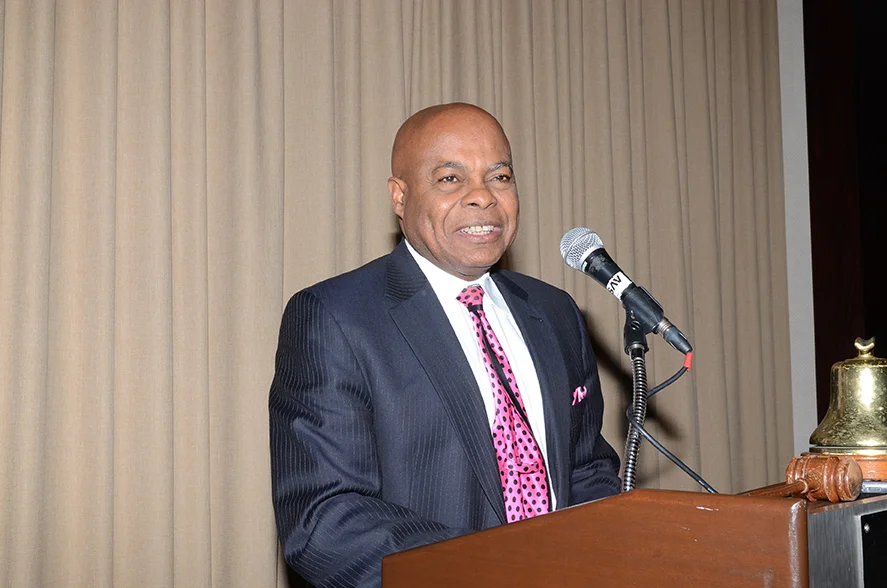Julius Isaac ‘has left incredible mark on legal history’
Justice Julius Isaac was a man of many firsts.
He was the first and only member of his family to attend law school, the first Black to be named to the Federal Court of Canada and the first person of colour to be appointed Chief Justice of the Federal Court.
The legal trailblazer passed away last Saturday in Regina, Saskatchewan just two days shy of his 83rd birthday.
A funeral service takes place today and his ashes will be sent to Grenada, the land of his birth which he left in 1951 to pursue a legal education in Canada.
Isaac worked as a coal miner in Cape Breton to pay for his first year at law school and then took jobs as a maintenance worker at the Toronto Star and as a railway porter to complete law school at the University of Toronto in 1958.
He co-founded the university’s West Indies Students’ Association and served as legal adviser to the Canadian Brotherhood of Railway Transport and Other Workers before earning his law degree.
Called to the Ontario Bar in 1960, Isaac worked in private practice in corporate commercial law and criminal and civil litigation, acted as legal advisor to the Saskatchewan government and various crown corporations, served as senior Magistrate in Grenada and provided legal counsel to the Ontario Securities Commission before joining the Department of Justice in 1971.
He functioned in various capacities in the federal department for 18 years before being appointed a Justice of the Supreme Court of Ontario in 1989. Three years later, he made history becoming Canada’s first Black Chief Justice and the first Black to sit on the federal court.
Superior Court Justice Michael Tulloch said Isaac was an important part of Canada’s legal establishment for nearly five decades.
“The exceptional contributions and achievements of Justice Isaac reflect the spirit of excellence, strength, determination and promise,” said Tulloch, a former Canadian Association of Black Lawyers (CABL) president “…He also exemplified the principles on which the CABL was established. He believed in a pluralistic society where all persons, all religions and both sexes should be treated with the same dignity and respect that he accorded everyone he met.
“He also believed strongly in the rule of law and that the law has the vitality and capacity to make realities out of those dreams, to make the midnight of despair a tomorrow of hope and fulfillment. And, he expressed this commitment repeatedly in his writings and speeches…He has left an indelible mark on our legal history.”
Isaac resigned from the Federal Court of Canada in 1999 under controversial circumstances.
He was censured by the Supreme Court of Canada after it heard a case two years earlier involving a secret meeting between him and then assistant minister responsible for war crimes prosecutions Ted Thompson to discuss accelerating the slow process of prosecuting war crimes.
The Supreme Court deemed the meeting a “serious affront” to the appearance of judicial independence but declared it didn’t compromise the fairness of the trial.
Isaac was as a superumeray judge prior to accepting the post of chair of Jamaica’s West Kingston Inquiry following the July 2001 deaths of two police officers and 25 civilians.
He also made a profound contribution to Grenada’s constitutional reform document, working closely with Professor Simeon McIntosh to produce the first draft for public education titled, Constitutional Review in Grenada: Some Things to Consider.
“He was an outstanding citizen and legal mind,” said Grenada’s honourary consul general Jenny Gumbs who is in Saskatchewan for today’s funeral.
In November 2003, the CABL collaborated with the University of Windsor’s Law Faculty to institute a scholarship in Isaac’s name that’s awarded to a first-year Black student.
Patricia DeGuire, who along with Sandy Thomas played a pivotal role in creating the scholarship, said Isaac was a leader among a pantheon of jurists whose legacy informed the evolution of justice in Canada.
“His judicial acumen and erudite decisions, treatises and speeches informed by his keen sense of commitment to continuous learning, his unquenchable thirst for justice and his automated sense of commitment to make the best better have benefitted us all,” said DeGuire, a former CABL president and director of professional development. “…Few men, besides our fathers, have left such lasting positive impressions on us as he did.”
Thomas, a CABL founding member, said Isaac’s death is a tremendous loss.
“He was a mentor and someone who looked out for us as young lawyers,” recalled the Public Prosecution Service of Canada counsel. “He was well experienced and well qualified to provide us with expert professional guidance.”
Isaac, who also practiced in Alberta, was a friend of some of Canada’s leading legal minds, including top criminal lawyer Edward Greenspan.
“Of any person I ever knew, he had the clearest picture of being a public servant,” Greenspan once said of Isaac. “For him, justice was one. He did not care about a person’s colour, race or creed. He was a genuine leader who earned a reputation for fairness and integrity.”
An Order of Canada recipient and Grenada silver jubilee award winner, Isaac co-founded the Grenada Association of Toronto 44 years ago, served as co-chair of the James Johnston Chair in Black Studies at Dalhousie University and was a member of the Negro Citizenship Committee, the Grand United Order of Oddfellows, Black Artists in Action and the Caribbean Cultural Committee.
Dalhousie University, the University of Windsor and the University of the West Indies also conferred honourary doctorates on him.
Isaac, who relocated to Regina five years ago, is survived by his wife Ann and three children.






